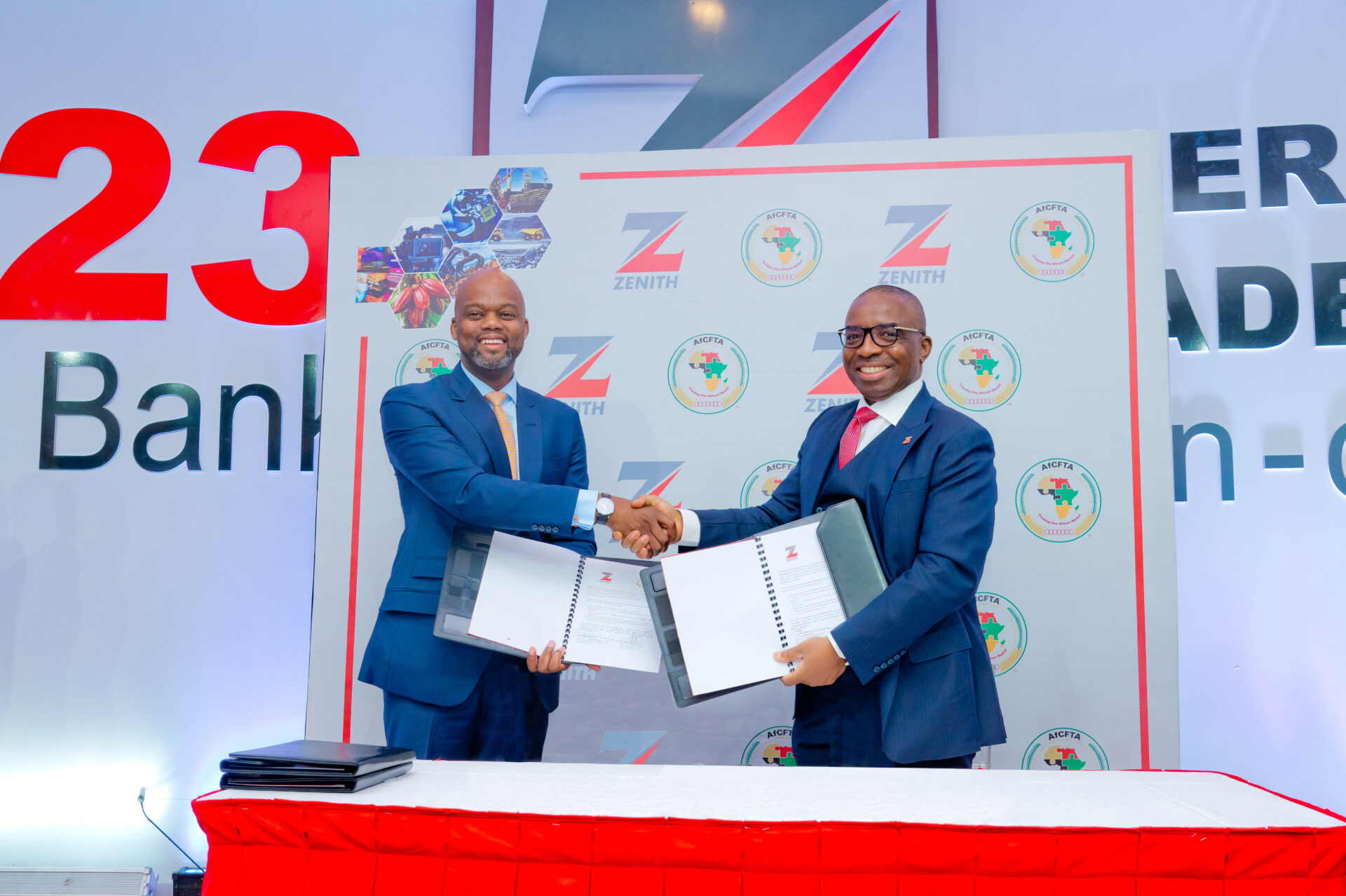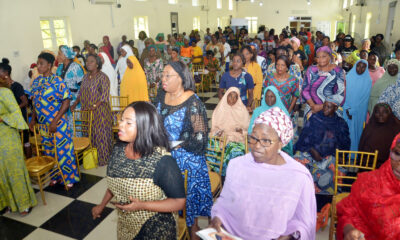Zenith Bank Plc has signed a Memorandum of Understanding (MoU) with the African Continental Free Trade Area (AfCFTA) Secretariat for the development of the SMARTAfCFTA Portal, for trade promotion within the African continent.
The SMARTAfCFTA Portal, which has the capacity to provide information like trade indicators, market trends, custom tariffs, trade agreements, rules of origin, market access requirements of relevant jurisdictions, export potentials, export diversification indicators and contact details of business partners in target markets and other trade-related information about Africa, will help to unlock the vast opportunities for trade on the African continent.
The MoU was signed by the Group Managing Director/CEO of Zenith Bank Plc, Dr. Ebenezer Onyeagwu and the Secretary-General of the AfCFTA Secretariat, His Excellency Wamkele Mene, during the 8th Annual Edition of the Zenith Bank International Trade Seminar on Non-Oil Export themed “Nigerian Non-Oil Export Industry: The Present, The Future”, held on Wednesday, August 8, 2023, at the Civic Centre, Victoria Island, Lagos and virtually.
Speaking on the partnership with AfCFTA for the development of the SMARTAfCFTA Portal, the Group Managing Director/CEO of Zenith Bank, Dr. Ebenezer Onyeagwu, said: “This collaboration aims to unlock the vast opportunities presented by AfCFTA not only for Nigeria’s economic prosperity but also for advancing trade across African countries”.
Also read: Wells Fargo and BNP Paribas Fined Heavily for Off-Channel Communications
Dr. Onyeagwu noted the key role that the annual Zenith Bank Trade Seminar plays in deepening the conversation on promoting non-oil export in Nigeria by bringing together non-oil export practitioners and relevant government agencies to interact and explore the opportunities and proffer solutions to the challenges of non-oil export in the country, noting that previous editions’ outcomes have found expression and influenced policy initiatives.
For instance, the extension of the period of repatriation of Non-Oil Export proceeds from 90 days to 180 days, and the policy mandating shippers not to carry export without a Nigeria Export Proceeds (NXP) Form Number were recommendations from previous seminars.
Also, the need to incentivise exporters to repatriate their export proceeds through the official channels and the recommendation to create export terminals across various export hubs in the country were also from past seminars. Also, previous editions recommended having Export Desks in commercial banks, which has now been instituted.
In his keynote address at the Zenith Bank International Trade Seminar, the Secretary-General of the AfCFTA Secretariat, His Excellency Wamkele Mene, thanked the Founder and Chairman of Zenith Bank, Jim Ovia, CFR, for partnering with the AfCFTA for the development of the SMARTAfCFTA Portal. In his words: “Zenith Bank was the first bank to say “we want to partner with you”.
We went to see the Founder and Chairman, and he said that Zenith Bank wants to make a contribution to digitise trade in Africa. And so the portal was not my idea, it was not our idea at the AfCTA Secretariat, it was Zenith Bank that stepped up and said, ‘this has to be done!’. So I want to thank you very much, GMD for this collaboration.”
In his goodwill message, Dr. Kingsley Obiora, the Deputy Governor of Economic Policy representing the Acting Governor of the Central Bank of Nigeria, Mr. Folashodun Adebisi Shonubi, commended Zenith Bank for leading Nigeria’s non-oil export promotion advocacy. He bemoaned the 1.2 per cent non-oil export to total GDP ratio and emphasised the need for concerted efforts to boost non-oil exports in Nigeria.
Zenith Bank launched the Non-Oil Export Seminar in 2016 as an initiative to deepen the discourse on promoting the non-oil export business in Nigeria. The 2023 International Trade Seminar also featured a goodwill message from the Secretary of the National Action Committee on AfCFTA, Mr. Olusegun Awolowo.
There were also two-panel discussions, with the first panel discussion titled: “Nigeria Non-Oil Export Industry – Growth Opportunities”, while the second panel discussion was titled: “Harnessing the Opportunities in Service Export”.


 Forex3 weeks ago
Forex3 weeks ago
 Naira3 weeks ago
Naira3 weeks ago
 Billionaire Watch2 weeks ago
Billionaire Watch2 weeks ago



 Naira3 weeks ago
Naira3 weeks ago






 Naira2 weeks ago
Naira2 weeks ago




 Naira1 week ago
Naira1 week ago




 Naira4 weeks ago
Naira4 weeks ago






 Naira1 week ago
Naira1 week ago



















